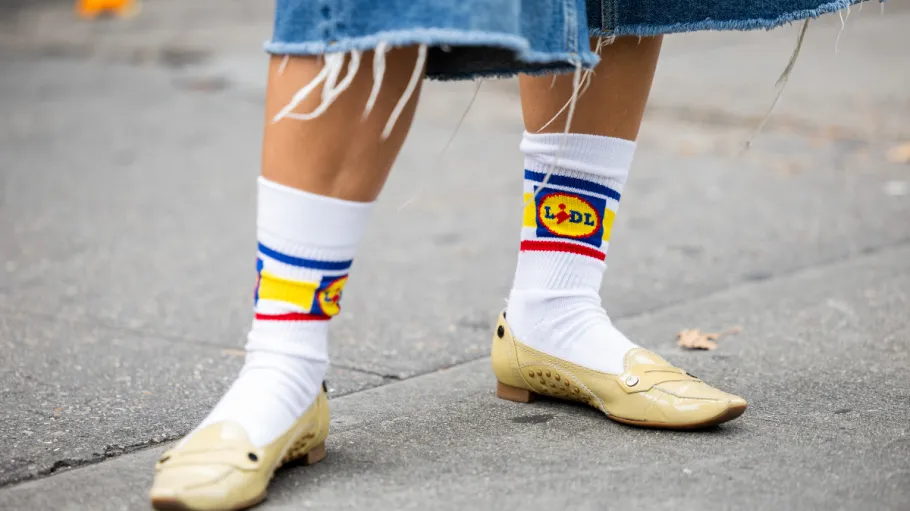Lidl Leaving Myanmar by 2025

Scourcing Journal
BY JASMIN MALIK CHUA DECEMBER 13, 2023 6:56PM
Lidl will “gradually withdraw” its clothing production from Myanmar as part of a responsible exit by 2025, the supermarket chain told Sourcing Journal. “Lidl takes its responsibility towards the employees in Myanmar and other countries where our suppliers produce very seriously and has been committed to compliance with social standards throughout the supply chain for many years,” a spokesperson said. “Wherever our actions have an impact on people, animals and the environment, we want to use our influence for positive change.”
The German-owned company’s decision follows a joint investigation by Das Erste’s “Panorama” news program and anti-greenwashing organization Flip, which traced a supposedly “eco-friendly” 8.99-euro ($9.80) tank dress to the beleaguered Southeast Asian nation, which has been under military dictatorship rule since civilian authorities were overthrown in February 2021.
In the two years since, Myanmar has descended into escalating chaos and violence, with the junta killing more than 4,250 civilians and arresting nearly 25,600 to date, according to the Assistance Association for Political Prisoners, a monitoring group. Labor rights have all but evaporated, experts say, burnt off by the heat of mounting human rights abuses, including wage theft, attacks on freedom of association, harassment and unfair dismissal. In September 2022, the Ethical Trading Initiative, a multistakeholder group that counts Lidl as a member, issued a report that provided “credible evidence of forced labor and exploitation.”
It said that its base code standards, which were founded on the conventions of the International Labour Organization, were not being met and that it is “not possible” for businesses to apply normal human rights due diligence in the country. Nearly a dozen boldface names would announce their phase-out from the country by the following year, including Aldi South, C&A, Mango, Primark, Tesco, Marks & Spencer, Uniqlo owner Fast Retailing, Muji parent Ryohin Keikaku, Zara owner Inditex and more recently, H&M Group.
But despite being linked to at least three cases involving gender-based violence and inhumane work rates, according to the Business & Human Rights Resource Centre’s worker allegations tracker, Lidl was sticking with its 30 Burmese suppliers as late as November, stating in an Alliance for Sustainable Textile progress report that month that it had “committed ourselves and our suppliers not to continue to withdraw any orders from Myanmar.” Speaking to “Panorama” and Flip earlier this month, workers who toiled at Lidl-contracted factories complained of “not even enough for food,” threats, intimidation, and collusion between management and the military.
“When the employer wants to say something to the workers, to express himself clearly, he invites the military,” one employee said. As a German-based company of a certain size stature, Lidl is beholden to the German Supply Chain Act, which legally requires enterprises with at least 3,000 employees to “make reasonable efforts” to ensure that there are no human rights and environmental violations in their global operations. The legislation went into effect in January and is viewed as a precursor to the European Union’s forthcoming corporate sustainability due diligence directive. Lidl wouldn’t say if the investigation had anything to do with its change of heart.
The spokesperson said it had continued to be active in the nation to “improve the working and living conditions for the local people in the long term,” with “significantly increased measures to fulfill our corporate due diligence.” In addition to a Myanmar-specific grievance mechanism, it had introduced “binding” guidelines, requiring regular independent inspections over at least two days, democratically elected employee representatives and legal reports on military connections for new production sites and the closure of factories in critical zones.
The decision to leave is not an easy one for companies to make. Critics of those who continue sourcing from Myanmar say that they’re legitimizing the junta while adding to its coffers. Others fear that a wave of brands departing the country will leave workers worse off because a nosedive in orders could shutter factories, further jeopardizing livelihoods. But the political situation in Myanmar is worsening, Lidl said, making it more challenging to comply with human rights due diligence. Following conversations with IndustriALL Global Union, which has developed a framework for responsible divestment, it “decided to follow the call” to pull back, the representative said. Until it exits, the nearly 12,000-store retailer will “continue to implement the increased measures for fulfilling our corporate due diligence.”
“We are committed to strengthening and respecting human rights, fair pay and safe working conditions within the framework of the UN Guiding Principles on Business and Human Rights,” the spokesperson added. “We will continue to closely monitor the situation in Myanmar even after our decision to phase out by 2025 and reassess it should the political situation change.”
Copyright © 2023 Penske Business Media, LLC. All Rights reserved. For subscribers => https://sourcingjournal.com/topics/labor/lidl-myanmar-garment-workers-sourcing-human-rights-due-diligence-military-junta-483277/
